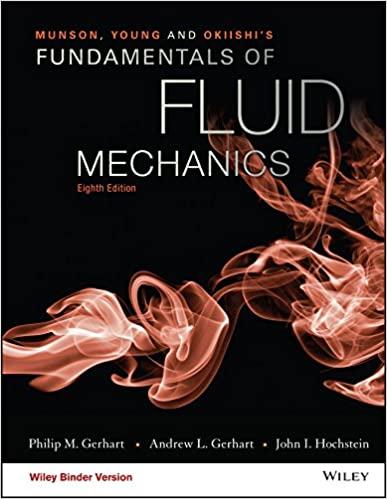A student is interested in the aerodynamic drag on spheres. She conducts a series of wind tunnel
Question:
A student is interested in the aerodynamic drag on spheres. She conducts a series of wind tunnel tests on a \(10-\mathrm{cm}\)-diameter sphere. The air in the wind tunnel is at \(50{ }^{\circ} \mathrm{C}\) and \(101.3 \mathrm{kPa}\). She presents the results of her tests in the form of a correlation,
\[ \mathscr{D}=0.0015 \mathrm{~V}^{1.92}, \]
where \(\mathscr{D}\) is the drag force in Newtons and \(V\) is the velocity in \(\mathrm{m} / \mathrm{s}\). Another student realizes that the results would have been more effectively presented in terms of dimensionless parameters, say,
\[ \Pi_{1}=f\left(\Pi_{2}\right)=C \Pi_{2}^{a} \]
where \(\Pi_{1}\) and \(\Pi_{2}\) are dimensionless parameters and \(C\) and \(a\) are constants. What are the most appropriate dimensionless parameters ( \(\Pi_{1}\) and \(\Pi_{2}\) ) and the corresponding values of \(C\) and \(a\) ? What would be the drag on a \(2-\mathrm{cm}\)-diameter sphere placed in a \(1-\mathrm{m} / \mathrm{s}, 20{ }^{\circ} \mathrm{C}\) water stream?
Step by Step Answer:

Munson Young And Okiishi's Fundamentals Of Fluid Mechanics
ISBN: 9781119080701
8th Edition
Authors: Philip M. Gerhart, Andrew L. Gerhart, John I. Hochstein





